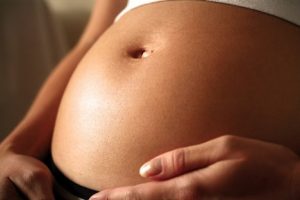Women With Eating Disorders Less Likely To Conceive, Half As Likely To Welcome Pregnancy
 Women trying to become pregnant with a history of anorexia or bulimia were much more likely to wait 6 months or longer to conceive than those not suffering from these diseases, and those women were also more likely to have used treatment to achieve pregnancy.
Women trying to become pregnant with a history of anorexia or bulimia were much more likely to wait 6 months or longer to conceive than those not suffering from these diseases, and those women were also more likely to have used treatment to achieve pregnancy.
But of the 171 women who said they had anorexia at some point in their life, almost 42 percent has said that their current pregnancy was unplanned. This was 13 percent higher than the control group. Those suffering with anorexia or bulimia were also more than twice as likely to feel unhappy when they found out they were pregnant.
“This research highlights that there are risks to fertility associated with eating disorders. However, the high rates of unplanned pregnancies in women with a history of anorexia suggest that women may be underestimating their chances of conceiving,” says the study’s lead author, Abigail Easter, who is from the Institute of Psychiatry at King’s College London.
“Women planning a pregnancy should ideally seek treatment for their eating disorder symptoms prior to conception and health professionals should be aware of eating disorders when assessing fertility and providing treatment for this,” Easter continues. Dr. Nadia Micali, of the Institute of Child Health, UCL says that health professionals are sometimes not aware of the potential effects of eating disorders on pregnancy and fertility and often need more pre- and postnatal care.
Source: Medical News Today
Photo: Wikimedia Commons. No endorsement implied. For license information visit: http://commons.wikimedia.org/wiki/File:Pregnant_woman2.jpg
 Eating Disorder Self Test. Take the EAT-26 self test to see if you might have eating disorder symptoms that might require professional evaluation. All answers are confidential.
Eating Disorder Self Test. Take the EAT-26 self test to see if you might have eating disorder symptoms that might require professional evaluation. All answers are confidential.